I am from Turkey, I lived there before moving to the Netherlands. I have never witnessed any other government than the current one. This being said I have witnessed countless censorships, a coup d’etat, restrictions on academic freedom, and the list goes on. I do not have any hope left to say that it will ever get better.
In this post, I will give information about the self-censorship of mainstream media during the Gezi Park Protests, the Twitter and YouTube ban in 2014, the censorship of accounts and content, the legislation process, and how it enforces the restricted freedom of speech.
Gezi Park Protests
Gezi Park Protests were demonstrations of civil disobedience and unrest initially against urban development plans for Gezi Park near Taksim Square in May 2013 and lasted until the end of August. It started as a sit-in and refusal to leave the park and faced a brutal police force that alarmed everyone across Turkey. Gezi Park Protests were not only happening in the park but in different locations all around the country to protest against a range of concerns including freedom of press and speech which was again restricted during the protests.
The Turkish media outlets did not appropriately cover the protests except a couple of government-opposing networks due to fear of fines and prosecutions, resulting in a self-censorship of Turkish media. While CNN International was broadcasting live coverage of the protests, CNN Turk was broadcasting a three-part documentary about penguins. This disparency and failure to report such a critical moment in Turkish history resulted in a petition to force CNN International to pull its name from the Turkish franchise.
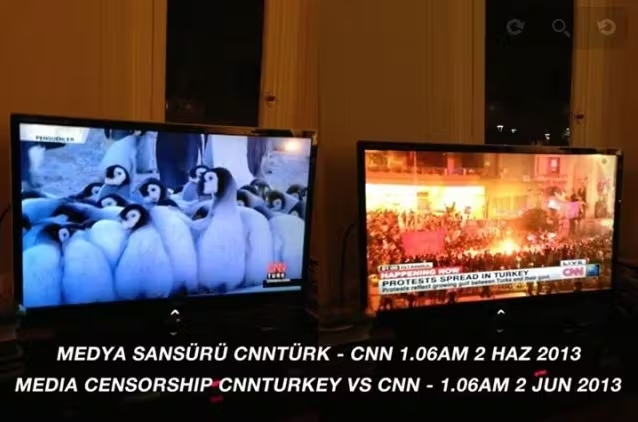
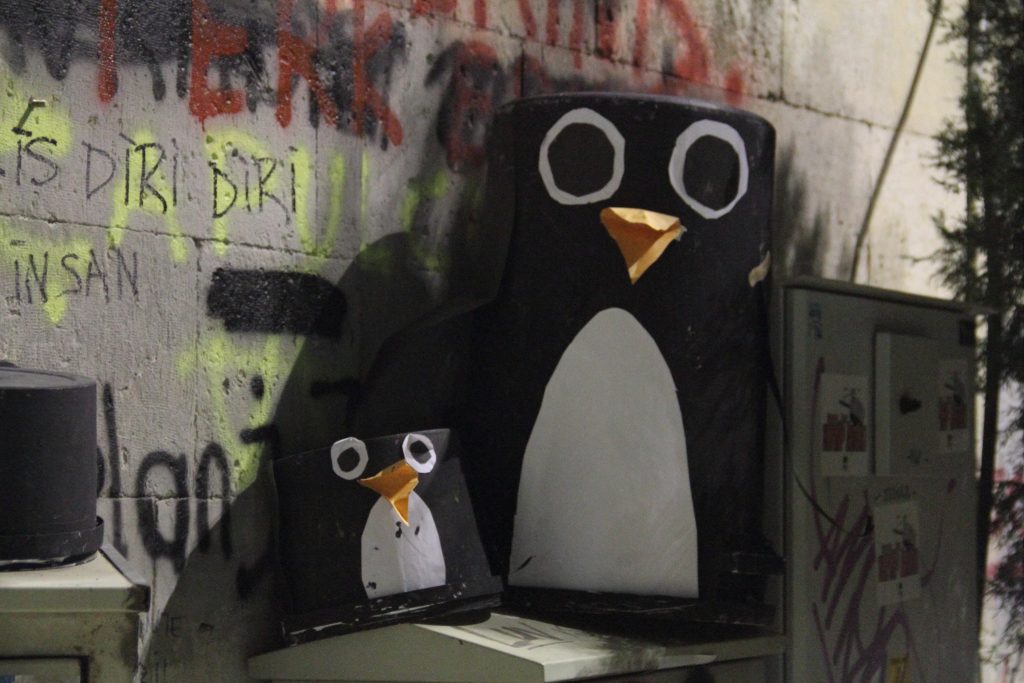
By Burak Su – Gezi parkı
Twitter vs Erdogan
On 20 March 2014, Erdogan blurted out these two iconic lines during a speech; “Twitter mwitter we will eradicate them.” and “The international community can say this, can say that. I don’t care at all. Everyone will see how powerful the Republic of Turkey is”. I do not see the correlation between a social media, free speech ban, and a nation’s power, but this speech came with a subsequent ban on Twitter and YouTube on based on applying “protection measures”.
However, after two weeks these actions were deemed illegal by the Turkish constitutional court, and ruled the block breached freedom of expression. This ruling did not stop the micro-bans, content removal requests, and requests for information on users’ identities..
In the second half of 2014, Turkey placed the top spot in content removal requests on Twitter with over five times more than any other country. Turkey’s rein at the top continued through 2015 when more than 70% of the requests were submitted by Turkish authorities and in 2016 where half of the requests were by Turkey. In 2019, Turkish authorities made the highest number ever of requests, and in 2022 Turkey placed third in rank.
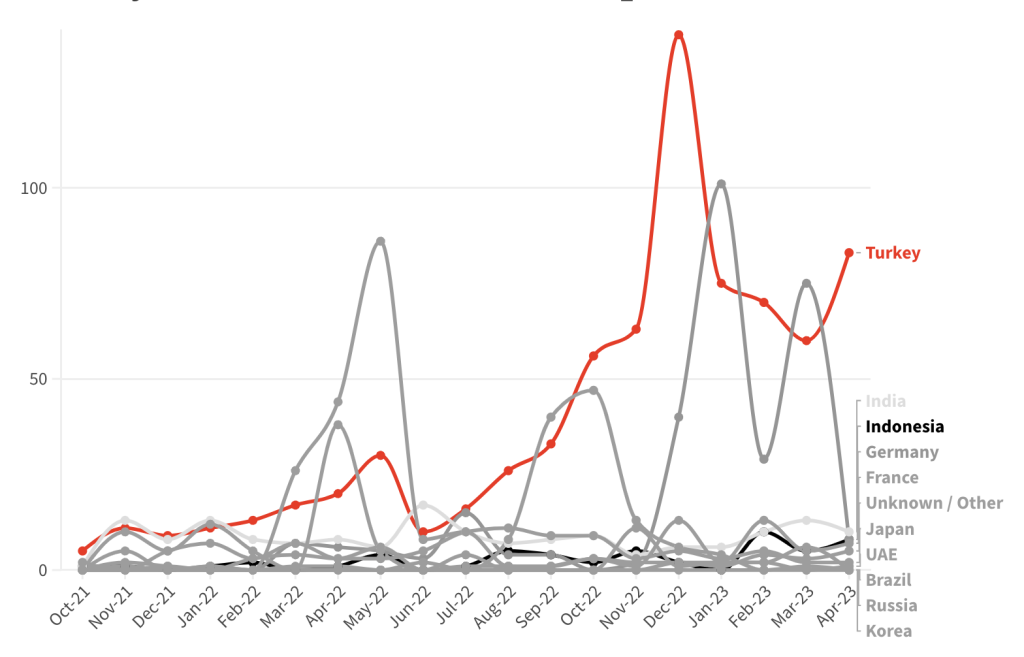
Image retrieved from Newsweek and by Lumen Database
The use of Articles 299, 301, and 312
These three articles are most frequently used against people voicing their opinions against the government and used to censor their content. I will explain what each of them is and how they are used.
Article 299 is against any insult to the president of Turkey and anyone who is sentenced to such a violation can face a one to four year jail sentence. In recent years this law also started to cover the members of the ruling party and its ministers. The issue of frequent convictions according to this article is also investigated by Humans’ Right Watch.
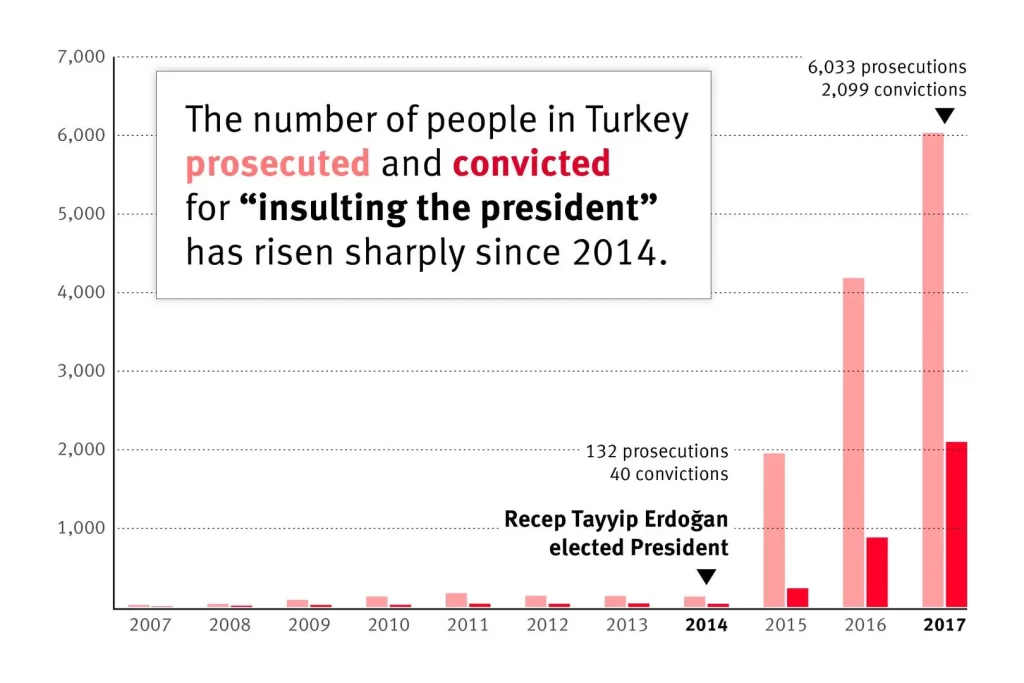
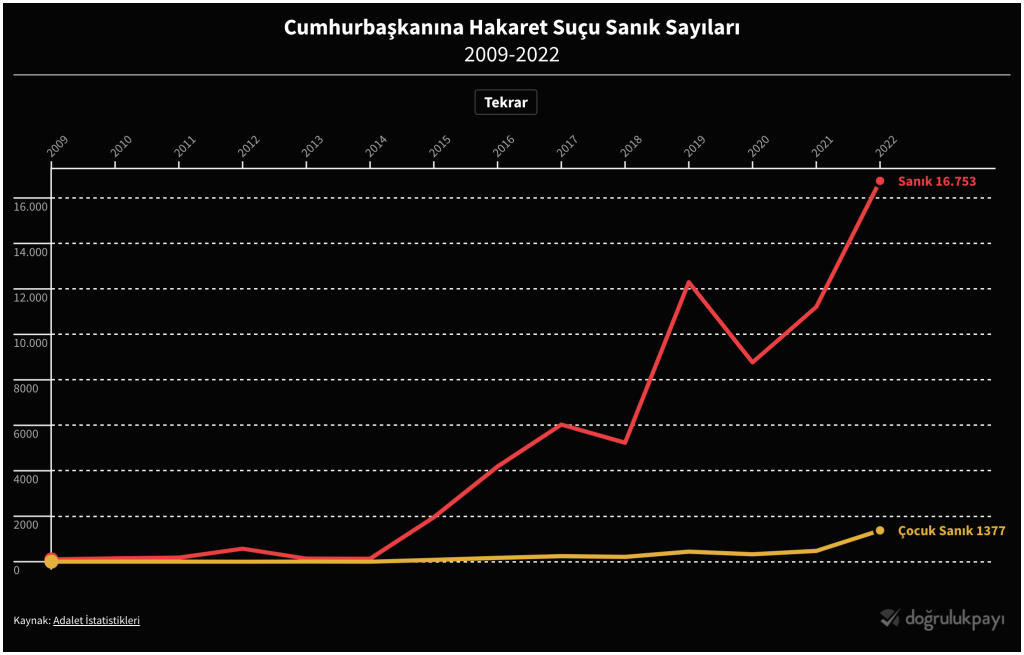
Article 301 covers any insult to Turkey, its government, the Turkish nation, Turkish government institutions, or Turkish national heroes. Even a commentary or a criticism has a chance to be prosecuted under this article. Internationally known authors such as Orhan Pamuk and Elif Shafak also faced prosecution under this law with accusations of insulting “Turkishness” in their literary works.
Lastly, Article 312 makes it illegal to incite racial or religious hatred encouraging people to disobey with a possible threat to public order. In practice, this article is used against hate speech (what was intended against) and people who are voicing their opinions against government policies on minorities in Turkey.
On top of these three articles, journalists and social media users also face accusations under Offenses Against State Confidentiality and Espionage, Offenses Against the Constitutional Order and its Functioning, and Anti-Terror Laws which are really heavy accusations with the possible penalty of aggravated life sentence. The database of the Press in Arrest has shown that in 2019 and 2020, at least 398 journalists stood trial in 159 cases.
Any Hope Left?
With the information I have shared so far, the answer is no. Due to the word count rule on the blogs, I do have to split this blog into two parts; before the 2016 coup d’etat attempt and afterwards. In my next blog post, I will go into detail about the coup d’etat attempt, the aftermath of it and the media purge, the Wikipedia ban in Turkey, a single case of successful counter-censor, and the recent legislation on social media.



Thank you for writing this post! As someone who also grew up with these news and censorship I really loved how you gave space to this topic on your account. This is a topic that should be talked more, but on the other hand the censorhsip in the begining is why we cannot even talk more about it. It just feels like an endless cycle of being silenced. Media is such a powerful space, that I can understand how they can be scared of it and try to limit it. Also the effects of living in a country like that is also very interesting. Sometimes I find myself thinking if I am “allowed” to say somethings, and it feels so unfair that we had to grow up with these.